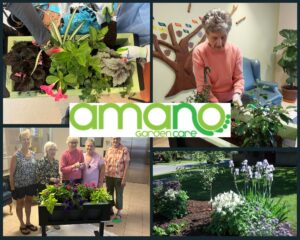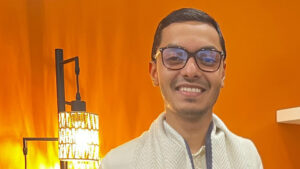CSED recently sat down with Anouk Bertner, Executive Director of EcoEquitable to learn more about the organization and the people they serve.
What does your social enterprise do?
EcoEquitable is a charitable organization and social enterprise that supports newcomer women in developing the skills necessary for financial autonomy through sewing while greening the environment. We recycle over 10,000 lbs of textiles annually and support our community in embracing slow fashion and a zero-waste lifestyle. We offer a wide range of sewing courses for all levels and sewing aspirations.
Where are you located?
We are located in Vanier, Ottawa.
What was the inspiration behind creating the social enterprise?
EcoEquitable is a charitable organization and social enterprise that supports newcomer women in developing the skills necessary for financial autonomy through sewing while greening the environment. We recycle over 10,000 lbs of textiles annually and support our community in embracing slow fashion and a zero-waste lifestyle. We offer a wide range of sewing courses for all levels and sewing aspirations.
Tell us about the people you serve? How do they typically find you?
Our charitable clients are primarily female newcomers who are dependent on social assistance. They are usually referred to us by social workers at the City of Ottawa. Our social enterprise clients are mostly women who care. Women who are looking to build their community through their purchases
How has CSED helped you?
CSED has supported us with Purchasing Officer panels and great conferences. We have attended many networking events – we met our Board Treasurer at one! The networking and the connection to like-minded organizations has been great.
What challenges do you face day to day?
Our challenges are different today than they were a year ago! Today, it’s all about COVID-19 precautions and keeping people safe. In general, we worry about the same things that most small organizations do: cash flow, increasing our impact, improving our processes, taking good care of our staff and volunteers without a lot of resources.
How has COVID-19 affected your activities and what are you doing to respond?
We used to make conference bags and offer in-person sewing classes so it’s been a huge change! We’ve been able to pivot our products to masks and isolation gowns so that has been good. Our classes have come back, but with smaller class sizes and many precautions. I think one of the hardest things about operating in a COVID-19 environment is that it’s impossible to plan when the future is so uncertain.
What are some of the lessons you and your team have learned along the way?
A few things I have learned is to never take anything personally. Every situation, even negative ones, have a kernel of truth that I can learn from. Also, always assume the best in people and give them the opportunity to explain themselves. So often, we assume the worst and things just escalate. I find that technology makes that situation worst.
What is your vision moving forward?
To continue our work in creating confidence in our ladies and ensuring that they have the building blocks for financial autonomy.
What makes you most proud?
Seeing our participants turn their lives around. Every time I get complacent or ungrateful for my life, the universe has a way of introducing me to someone who is such a strong, resilient and amazing human being and I am reminded of why my work is important. This is why it’s so rewarding to work in a social enterprise.
What keeps you up at night?
It’s really frustrating to know that your work is important, but unsupported by all three levels of government and we have not been able to attain core funding. I would be able to do so much more if I didn’t have to worry about money all the time. Social enterprise is an interesting field because it’s entrepreneurship, but in a charitable context which is really constrained and risk-averse.
How can CSED help you further?
Networking is always great. Connecting us to procurement officers would also be great.



